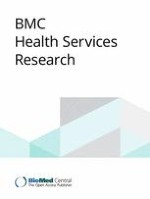Published in:

Open Access
01-07-2016 | Debate
Space and place for WHO health development dialogues in the African Region
Authors:
Joses Muthuri Kirigia, Juliet Nabyonga-Orem, Delanyo Yao Tsidi Dovlo
Published in:
BMC Health Services Research
|
Special Issue 4/2016
Login to get access
Abstract
Background
Majority of the countries in the World Health Organization (WHO) African Region are not on track to achieve the health-related Millennium Development Goals, yet even more ambitious Sustainable Development Goals (SDGs), including SDG 3 on heath, have been adopted. This paper highlights the challenges - amplified by the recent Ebola virus disease (EVD) outbreak in West Africa - that require WHO and other partners’ dialogue in support of the countries, and debate on how WHO can leverage the existing space and place to foster health development dialogues in the Region.
Discussion
To realise SDG 3 on ensuring healthy lives and promoting well-being for all at all ages, the African Region needs to tackle the persistent weaknesses in its health systems, systems that address the social determinants of health and national health research systems. The performance of the third item is crucial for the development and innovation of systems, products and tools for promoting, maintaining and restoring health in an equitable manner.
Under its new leadership, the WHO Regional Office for Africa is transforming itself to galvanise existing partnerships, as well as forging new ones, with a view to accelerating the provision of timely and quality support to the countries in pursuit of SDG 3. WHO in the African Region engages in dialogues with various stakeholders in the process of health development. The EVD outbreak in West Africa accentuated the necessity for optimally exploiting currently available space and place for health development discourse. There is urgent need for the WHO Regional Office for Africa to fully leverage the space and place arenas of the World Health Assembly, WHO Regional Committee for Africa, African Union, Regional economic communities, Harmonization for Health in Africa, United Nations Economic Commission for Africa, African Development Bank, professional associations, and WHO African Health Forum, when it is created, for dialogues to mobilise the required resources to give the African Region the thrust it needs to attain SDG 3.
Conclusions
The pursuit of SDG 3 amidst multiple challenges related to political leadership and governance, weak health systems, sub-optimal systems for addressing the socioeconomic determinants of health, and weak national health research systems calls for optimum use of all the space and place available for regional health development dialogues to supplement Member States’ efforts.
